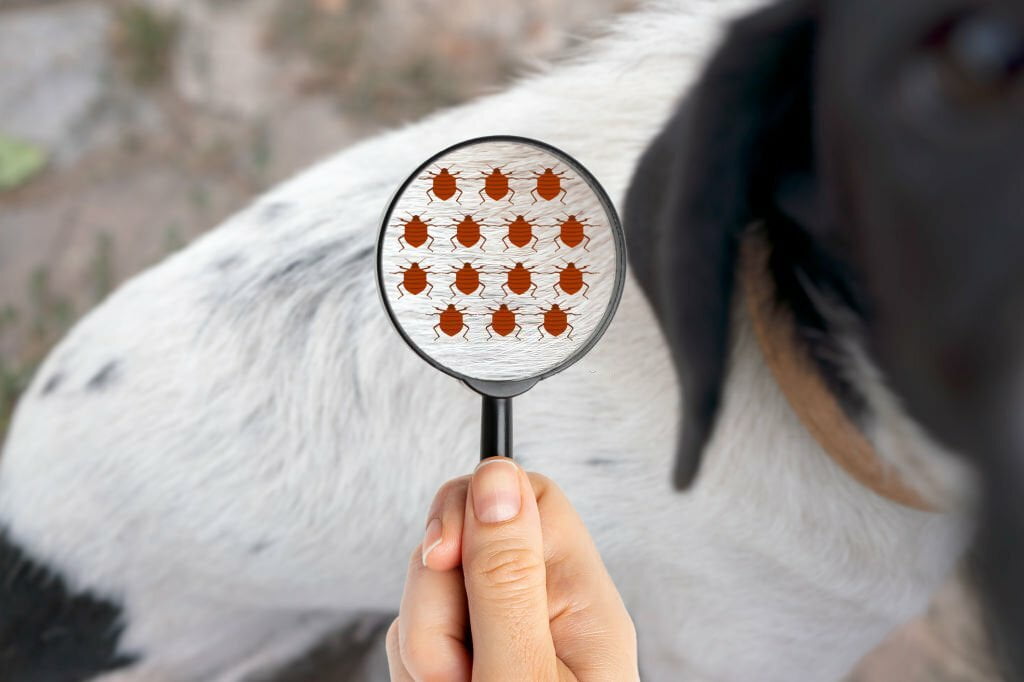The specific annual treatments and vaccinations that dogs need can vary based on factors such as the dog’s age, breed, health status, and local regulations. However, here are some common recommendations:
Rabies
Rabies, a neurotropic virus, poses a grave threat to both dogs and humans. It necessitates stringent vaccination due to its zoonotic nature and the severe consequences associated with infection, including neurological impairment and death. Compliance with rabies vaccination not only ensures the individual dog’s safety but also safeguards public health, forming a crucial aspect of responsible pet ownership.
Distemper, Hepatitis, Parvovirus (DHPP)
The DHPP combination vaccine is a cornerstone in preventing three devastating diseases. Distemper, affecting the respiratory, gastrointestinal, and nervous systems, can result in a range of clinical signs. Hepatitis targets the liver, causing inflammation and potential organ damage. Parvovirus affects the gastrointestinal tract, leading to severe vomiting and diarrhea. The DHPP vaccine serves as a robust shield against these multifaceted threats, promoting overall canine health.
Non-Core Vaccinations
Leptospirosis
Leptospirosis, caused by spirochetes of the genus Leptospira, poses risks to both canine and human health. Dogs with increased exposure to wildlife or water sources are at heightened risk. The vaccine provides a critical defense against this bacterial infection, preventing renal and hepatic dysfunction in dogs and reducing the risk of transmission to other species.
Bordetella (Kennel Cough)
Bordetella bronchiseptica, the causative agent of kennel cough, thrives in environments where dogs congregate. The vaccine is a valuable tool in preventing respiratory infections, minimizing the impact on the dog’s respiratory tract and curbing the spread of the disease in social settings.
Canine Influenza
Canine influenza, caused by influenza A H3N8 and H3N2 viruses, has the potential to cause severe respiratory illness in dogs. The decision to vaccinate against canine influenza is based on the dog’s exposure risk, particularly for those engaging in activities with other dogs. This vaccine acts as a crucial preventative measure, reducing the severity and spread of the disease.
Parasite Control
 Heartworm Prevention
Heartworm Prevention
Dirofilaria immitis, the causative agent of heartworm disease, poses a serious risk in areas with prevalent mosquito populations. Monthly preventatives disrupt the heartworm lifecycle, preventing the development of adult worms and mitigating the risk of cardiovascular and respiratory complications in infected dogs.
Flea and Tick Prevention
Fleas and ticks are not only irritating pests but also vectors for various diseases. Regular preventive treatments, including topical solutions, collars, and oral medications, play a vital role in preventing infestations, reducing discomfort, and averting the transmission of pathogens.
Dental Care
Regular dental check-ups and professional cleanings are paramount for oral health. Periodontal disease, resulting from plaque and tartar buildup, can lead to tooth loss and systemic health issues. The veterinarian’s role in dental care includes not only addressing existing dental problems but also providing guidance on at-home dental care practices.
General Health Check-up
Routine veterinary check-ups encompass a thorough evaluation of a dog’s physical condition, including cardiovascular, respiratory, and musculoskeletal systems. Besides vaccinations, these appointments allow for the early detection of underlying health issues, facilitating prompt intervention and personalized healthcare planning.
Nutritional Assessment
A balanced diet is the cornerstone of canine well-being. Nutritional assessments consider factors such as age, breed, activity level, and any pre-existing health conditions. Veterinarians offer guidance on appropriate diets, considering both commercial and home-prepared options, to meet the individual dog’s nutritional requirements.
Spaying/Neutering
Beyond population control, spaying and neutering offer various health benefits. For females, spaying reduces the risk of uterine infections and mammary tumors, while for males, neutering decreases the incidence of certain reproductive-related issues. The timing of these procedures is influenced by factors such as breed, age, and the owner’s intentions for breeding.
In conclusion, the comprehensive healthcare regimen for dogs goes beyond vaccinations to encompass parasite control, dental care, regular health check-ups, nutritional assessments, and considerations for reproductive health. This holistic approach ensures the well-being and longevity of our canine companions, reinforcing the bond between dogs and their human caretakers. Regular consultations with a veterinarian provide a roadmap for tailored and effective healthcare management.
Regular Exercise Routine
 Establish a consistent exercise routine that aligns with your dog’s energy levels. Daily walks, interactive play sessions, and opportunities for off-leash exploration contribute to physical and mental health.
Establish a consistent exercise routine that aligns with your dog’s energy levels. Daily walks, interactive play sessions, and opportunities for off-leash exploration contribute to physical and mental health.
Environmental Enrichment
Create an enriching environment with a variety of toys, including puzzle toys and chew toys. Rotate toys to keep your dog engaged and mentally stimulated.
Temperature Awareness
Be mindful of temperature extremes. In hot weather, provide shade, water, and avoid walks during peak heat. In cold weather, use protective gear and limit exposure to icy surfaces.
Regular Veterinary Check-ins
Pro Tip for annual treatments do dogs need: Schedule routine veterinary check-ups even when your dog appears healthy. Early detection of potential issues ensures timely intervention and preventive care.
Hygiene Practices
Practice good hygiene by regularly bathing your dog with a gentle, dog-friendly shampoo. Keep ears clean and dry to prevent infections, and trim hair around the eyes to enhance visibility.
Joint Care
Pro Tip for annual treatments do dogs need: For larger breeds or senior dogs, consider joint supplements to support mobility. Provide a comfortable and supportive bed, especially for dogs with arthritis or joint issues.
Socialization and Training
Continue socialization throughout your dog’s life. Positive exposure to various environments, people, and other dogs helps build confidence and reduces anxiety.
Maintain a Healthy Weight
Monitor your dog’s weight and adjust the diet accordingly. Obesity can contribute to various health issues, including arthritis and diabetes.
Emergency Preparedness
Have an emergency kit that includes essential supplies, medical records, and contact information for your veterinarian and local emergency services. Familiarize yourself with the location of the nearest 24-hour veterinary clinic. Demystifying Dog Breeds
Dental Health Practices
Pro Tip for annual treatments do dogs need: Implement a dental care routine at home, including regular tooth brushing and dental treats. This helps prevent plaque and tartar buildup, promoting overall oral health.
Monitoring Behavioral Changes
Pay attention to changes in behavior, such as lethargy, excessive thirst, or changes in appetite. These can be early signs of health issues that warrant veterinary attention.
Regular Grooming Sessions
Beyond basic grooming, such as brushing, schedule regular professional grooming sessions. This includes nail trimming, ear cleaning, and expressing anal glands.
By incorporating these home care tips into your routine, you’ll not only address your dog’s physical needs but also contribute to their mental and emotional well-being. A holistic approach to care ensures that your dog leads a happy, healthy, and fulfilling life as a cherished member of your family.


 Heartworm Prevention
Heartworm Prevention
2 Comments
Pingback: First Food For Dogs With Diarrhea - Pets care
Pingback: 15 Best Dogs for Kids and Families to Adopt Straight Away - Pets care